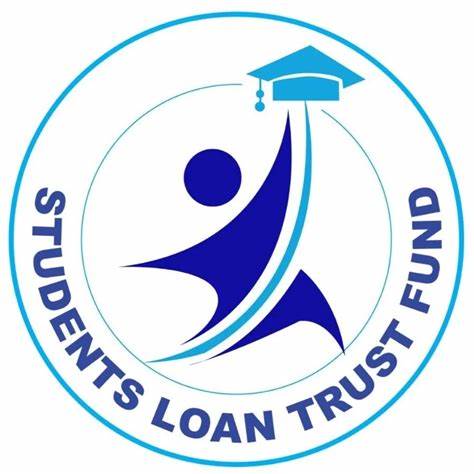The Students Loan Trust Fund (SLTF) is an agency under the Ministry of Education, which was set up in 2005 under the Trustees Incorporation Act, Act 1962 (Act 106) to take over the administration of students’ loan from SSNIT, and currently operates under Act 2011, Act 820.
The Fund under its enabling legislation is to disburse loans to students pursuing accredited tertiary programmes in accredited tertiary institutions in Ghana, and to recover same from beneficiaries upon completion of their education. With this mandate, the SLTF has on its portfolio 117 tertiary institutions made up of public and private universities, Polytechnics, Colleges of Education (CoEs) – public and private; and specialized institutions such as: GIJ, GIL, NAFTI, School of Survey & Mapping, Ghana Maritime University, etc.
The Fund has, as its governance, a 12 member Board of Trustees, comprising: 4 Government appointees; the Chief Executive Officer (CEO) and 7 institutional representatives, from the: Attorney-General’s Department, Ghana Employers Association, National Union of Ghana Students, Ministry of Education, Social Security and National Insurance Trust, National Council for Tertiary Education, and the Ghana Education Trust Fund. The day-to-day running of the Fund is by a team of professional management and staff, led by the CEO.
From its humble beginnings as a desk schedule in the Ministry of Education in 2005, the SLTF has grown in both physical presence and impact nationwide over the last 10 years. The Fund currently has 98 campus offices, 14 Zonal Offices and a Head Office. Section 19 of the SLTF Act, Act 820, stipulates that the loans are guaranteed for. In the last few years, however, access to SSNIT guarantors, who have hitherto been the only form of guarantee, has become a major challenge. But as a learning organization, which continuously works on its business processes based on its product strategy, the Students Loan Trust Fund has diversified the students’ loan guarantee. In fact, even the SSNIT guarantee has been modified from 3 to 1 SSNIT contributor; in addition: Metropolitan, Municipal and District Assemblies (MMDAs), Religious bodies and Corporate organisations are now eligible to guarantee the SLTF loan.
It is therefore, gratifying to report that, upon intense engagements in the last 2 years with the MMDAs and Churches, MMDAs in 7 Regions of the 10 Regions in Ghana have begun guaranteeing for students. The Sheik Nuhu Shaributu Education Trust Fund (SONSET) has guaranteed for over 1,000 Muslim students. We are also happy to report that so far 15 churches have put in place structures to guarantee for the Students Loan. In addition, we welcome the Zakat & Sadaqa Trust Fund on board to guarantee for Muslim students, beginning in the 2015/16 academic year.
The loans, as stated earlier, are to be recovered from beneficiaries upon completion. As a social intervention package by the Government of Ghana, students are entitled to take the loan to a maximum of 6 years in their education life-cycle; a 2 – year grace period after completion, and a repayment period of between 2 and 10 years to repay, depending on the number of years one enjoys the loan. This soft stance with the SLTF loan package therefore, imposes a moral responsibility on every beneficiary to ensure the loans are repaid when due. This notwithstanding, the Students Loan Agreement, signed by the borrowers when the loan is being accessed gives clear parameters for repayment, and section 24 of the SLTF Act also spells out clearly, the obligations of employers of beneficiaries of tertiary education, to enquire of them their students’ loan status and even proceed to make deductions on student loan beneficiaries remuneration, and pay same to SLTF.
The press engagement today is, therefore, not only to walk the media through the 10-year journey of the Students Loan Trust Fund, but to begin the process of building censuses on the anniversary theme: “Transforming Tertiary Education Financing in Ghana“. The process will provide opportunities for stakeholder engagements, leading to developing solutions that address the present and future financing needs of our tertiary population.
Even though inflows from government, namely: up to 10% inflows into the GETFund and the 1% Communication Service Tax revenue has been forthcoming, the Fund, in thinking outside the box, has not relented on its effort but acting within bounds to augment its traditional sources of financing tertiary students.
As stated earlier, the loans are available to both public and private tertiary students who, at the last National Council for Tertiary Education (NCTE) report of 2015 stands at over 380,000 students. However, the percentages stated can only be as large as their worth, which in the view of SLTF need bolstering with alternative sources of funds, even though recovery is currently playing a great complimentary role.
Engagements such as this, it is hoped, would disseminate the stance of SLTF and provoke the debate for making the Fund one of contemporary relevance, especially coming on the back of suggestions by the students that the loan amounts are ‘small’ as compared to the rising cost to tertiary education.
To prompt us all in this regard, the private sector in particular, should see the business of students’ loan as a business, with short and long term benefits. Indeed, Students Loan Trust Fund is working with some banks in the country to provide ‘top-up’ loans to student groups with relatively more assured job opportunities, but whose cost of education is high, such as the: Medical students, Teacher trainees, Nursing students and even for working students.
Again, the Fund is calling on all patrons of higher Education to build positive partnerships with the SLTF to make support for tertiary students well-structured and meaningful. The benefits to individuals and businesses that engage with the SLTF are stipulated in Act 820, Sections 3 (b) and (d). The SLTF as part of the anniversary dialogue is open for such stakeholder discussions and will avail to such partnerships a pool of relevant expertise and its credible governance, IT and PFM systems. Come on board and let’s work together to help supply the critical human capital, Ghana needs for accelerated development through Higher Education.
Whilst engaging on ways of improving on the contribution of the SLTF to the vision and mission on our sector Ministry, we will be focusing on a diversification of our resource base. It is also imperative that by the end of the 10th Anniversary seminars, symposia and public engagements, stakeholders would feel confident about strategies drawn out by the Fund to cater for both the present and future financial needs of our tertiary population.
The Student Loan Trust Fund therefore, looks forward to the active participation of all the interest groups identified for this 10th Anniversary dialogue.
LONG LIVE OUR HOMELAND GHANA.





